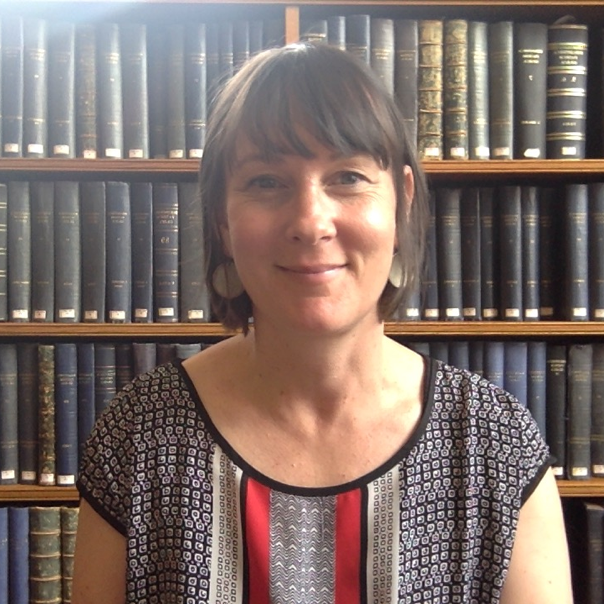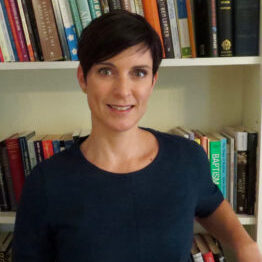Episode Transcript
[00:00:00] Speaker A: Foreign.
[00:00:04] Speaker B: You'Re listening to by the well, a lectionary based podcast for preachers recorded on the land of the Wurundjeri people.
Hello everyone. It's great to be with you here today. I'm Kylie Crabbe and I'm really delighted to be joined today by Professor Brendan Byrne.
Thanks for joining us, Brendan.
Brendan is a Jesuit priest and a well known biblical scholar, known for writing on biblical texts across the whole of the New Testament. Really?
And include including beyond that scholar also of Second Temple Judaism, the Dead Sea Scrolls, all sorts of things. People might know many of his books including for instance his commentary on Romans in the Sacra Padana series and of course his wonderful, his wonderful commentaries which are very learned and very accessible on each of the Gospels.
And I guess particularly relevant for this lectionary year is his book on Luke's gospel, the Hospitality of God, a reading of Luke's Gospel.
So thank you for joining us, Brendan. We're so delighted to have you here with us.
[00:01:22] Speaker A: I'm a pleasure. Happy to be with you. Yes, anything to talk about any biblical text. I'm very happy to do that especially to people who are going to preach the Word.
[00:01:32] Speaker B: Yes, yes, it's wonderful community of people who listen to this podcast and think about how we're going to talk about the Bible in in worship each week. So it's great to have you here.
This week we are talking about readings for after Pentecost 21 and we're going to look at Habakkuk chapter 1, verses 1 to 4 and chapter 2 verses 1 to 4, second Thessalonians chapter 1 verses 1 to 4 and Luke 19 verses 1 to 10. And we're going to speak just briefly about the Habakkuk and the second Thessalonians readings and speak today mostly about the Luke reading. So lots of wonderful things in store for us today.
If we begin with Habakkuk then Brendan, what can I ask you know what stands out to you in this reading that you would, you would be pondering in your heart for preaching this week on this?
[00:02:31] Speaker A: Well, I'm far from an expert on Habakkuk, but he's one of the minor prophets, of course, and actually one of the most poetic one. But he lived in a very troubled time obviously when Judah was under great threat from foreign powers and had to contemplate the loss of the northern kingdom, I think too.
So that opening of the dialogue between the prophet and God, it actually speaks to me a lot about today.
Why do you see, oh Lord, how long should I cry for help when you will not listen or cry to you violence and you will not save. Why do you make me see wrongdoing and look at trouble?
Destruction and violence are before me. Strife and contention arise. So the law becomes slack, the wicked surround the righteous, and judgment comes forth perverted. So Habakkuz is looking at the fact that there's a lot of injustice in his society and the institutions of justice are not working.
And what can he do? What can be done?
And then the second bit of the reading that we go into, chapter one, and I think it is, I find it personally very moving. I will stand at my watch posts and station myself on the rampant. I will keep watch to see what God will say to me and what he will answer concerning my complaint. And then so Habakkuk is really on the watch and waiting for the Lord. And then the Lord does answer him and says, write the vision, make it plain on tablets. And there's a curious expression so that a runner may read it.
I just had a look at one of the commentaries and said, what's this thing about the runner? It's just that a person, it's on a tablet, but a person running past and not stopping to look at it closely can nonetheless get the message conceived because it's written so clearly. And it's like a sign, you know, big sign put up by the side of the road or something like. So it's plain. And then this emphasis of the Lord, there is still a vision for the appointed time. It speaks of the end and does not die, lie. If it seems to tarry, wait for it, for it will surely come. I think there is a wonderful sense of assurance in that, of hang in there sort of thing.
And of course, the reading ends, look at the proud, their spirit is not right in them. But then we have a very, very phrase that became destined to become right through the biblical record.
But the righteous live by their faith.
Be well aware that St. Paul made a very, very great deal of that because it links righteousness and faith, rather than righteousness with works.
And in the letter to the Hebrews, it comes in there too. But I think we do have to understand faith there in the context of the Habakkuk, not so much as Paul's sense of faith in God's gracious action in Christ, but more just in steadfastness, loyalty hanging in there. Just wait for it.
That's my sense. But now what you can make of.
[00:06:15] Speaker B: That as yes, yes, yes, no, it, it's. It's amazing how perennial in fact, these texts that are written for particular troubled political contexts, you know that the message continues to resonate, doesn't it, in. In other circumstances? And I'm sure in our congregations when we're reflecting on these readings, there'll be lots of things that come to the minds of the people who. Who gather about what's the trouble that they are finding hope through.
But I'm mostly struck, in fact, by what you just said about the.
This image of the runner and the vision, that there is still a vision. But even if it seems to tarry and can we put our vision in such a way that it can be seen by someone who is simply running past, could we communicate what is so core to what we're doing here, so important to. To. To our call, or, you know, not. Not simplifying in the sense of not. Not. This is probably. This is not a word. Not simple. Of simple. Making it simplistic, simplisticifying, but. But making it somehow distilled as. As a kind of truth that might bring hope and courage and solace to someone just running past us.
[00:07:32] Speaker A: It's. It's interesting if I. You. You mentioned before that I've done a bit of work on the Dead Sea Scrolls. Indeed. They are indeed a great fascination.
But it's interesting that one of the Dead Sea Scrolls is a pesha, a commentary on Habakkuk, and this is the discovery of this commentary which shows a whole method of interpretation amongst these Qumran people at the time. Really? Really. At the time of. About just before the rise of Christianity, is that they were reading Habakkuk to understand their own times.
And especially this passage.
Wait for it is commented on there. So Habakkuk's had another run because his writings have become famous. Everyone's gone back to Habakkuk because of what the people in the Dead Sea Scrolls made of it. In possibly the longest and the best in example of this pesha method we have in the collection of Dead Sea Scrolls.
[00:08:40] Speaker B: Yes. Pesha, meaning a kind of commentary where there's a sort of line where you relate interpretation.
[00:08:46] Speaker A: Yes. Word by word. You take words and you relate them to incidents in your own time that help you to understand that what's happening is somehow still God is still somehow behind it, even if it seems totally dismaying at first sight.
[00:09:03] Speaker B: Yeah, yeah, yeah. Very good. Okay. We could talk about each reading for ages, but let's. Shall we move on, though, to.
[00:09:10] Speaker A: I think we need to move on.
[00:09:11] Speaker B: Yeah, yeah. We. We encourage everyone to look at the. At the old Testament reading at yourselves and see some of these moving lines within it.
If we turn to Second Thessalonians, we have here just the intro bit to the letter as. As our verses for this week. But I'm conscious that Second Thessalonians is going to come up over the next couple of weeks for. For another couple of weeks beyond this in the lectionary.
What. What would you want to say about Second Thessalonians to. To people who are contemplating, you know, we might. We have this sort of set of readings written by Paul or that the. That the canon presents is written by Paul. And there's a bit of a mix of those. And many scholars spend their time trying to work out what order they're written in or which ones are written by Paul or, you know, what's important about Second Thessalonians in that context.
[00:09:59] Speaker A: Well, I would hold that it does reflect a rather later time than Paul and the concerns of the later time.
And so it's a bit of a riff on 1 Thessalonians rather than being something that Paul would.
[00:10:14] Speaker B: The contrast also there being like, First Thessalonians is one of the earliest letters.
[00:10:18] Speaker A: It's probably the earliest. Yeah.
[00:10:20] Speaker B: Yes.
So we have like, something that was. If we're trying to read from First Thessalonians to second, we might hit some speed bumps.
[00:10:31] Speaker A: Yes, yes.
Yes, I'd say so. It's preoccupied, this worry about Antichrist and all that sort of thing which seemed to have arisen at the time, and it's curbing a false sense of eschatology.
And so again, it's saying, I think weight.
Just hang in there and wait and don't be led astray by false indications that are disturbing people.
And so again, it has picked up, though what I find always very attractive about Paul's letters is that he always begins by reciting what we call. I'm using my Jesuit theology, Jesuit terminology, the graced history of the community, what God has done for them and how grateful they should be and how proud he is of what they've done. It's a very. It's always very encouraging because Paul thinks that encouragement par paracis is really what Christian communities need to receive above all that must be. Yes, there are some times when he admonishes them and complains and so forth.
[00:11:48] Speaker B: But in, you might say they always. Encouragement. But he's happy to write to them more crossly than.
[00:11:52] Speaker A: Oh, yes, yes.
And in the letter, when he's really angry with Galatians, he doesn't. He leaves out the Thanksgiving there Yes, he relents a little bit at the end.
So we've still got that there in the two Thessalonians.
And it ends with that sense of praising their steadfastness and faith during all your persecutions and the afflictions you are enduring. So that picks up a little bit of, I think that faith righteous live by their faith in that sense of steadfastness that we have in the Habakkuk reading.
[00:12:30] Speaker B: Yeah. Yeah, beautiful. Okay. Well, I hope that people that gives you a bit of a taster of second Thessalonians. If you're planning to focus on that over the coming weeks, you'll be well served as a beginning. But let's turn our attention to our main focus for today, which is on the reading from Luke's gospel. So chapter 19, verses 1 to 10. We're. Which is, as I'm sure everybody knows, as soon as they see this. This is the story of Zacchaeus.
[00:12:56] Speaker A: The story of Zacchaeus. Yeah.
[00:12:58] Speaker B: Yes. Before we get too. Well, this is part of the intro to thinking about this, then, is to think about how it fits within the.
The context of the Gospel.
And I'm thinking, you know, we're towards the end of the.
Of this lectionary year. We've only got a couple of weeks left.
What.
How would you say this, Brendan, as you know, like, this is an important.
Sorry, my power keeps going off. This is an important section of an important point in the Gospel, the story of Zacchaeus just before the triumphal entry. But is it also bringing together other things that you see as key themes across the Gospel?
[00:13:47] Speaker A: Well, I'm aware that Kylie has written a doctorate on the accident, so my understanding of Luke may be a little bit amateur compared to yours, but I'm working on Acts at the moment and therefore thinking of Luke, Acts as a whole. And I do see a unity among. I think, personally, Luke is very fascinated by the whole idea of conversion, of what helps people to come to a deeper sense of conversion. That is what's required to really respond to the Gospel. And what inhibits that and what inhibits it, to my mind, for Luke is very much narrowness of thoughts, of being unready to see a wider vision. Perhaps we can think of the Habakkuk thing again, because I've come to see a pattern in Luke's Gospel. Those of you familiar with my book, the Hospitality of God, you would have perhaps been intrigued by this strange idea I have, which my students call my Luke and triangle. It's that I see a pattern Again and again in Luke, in the scenes of Jesus. And this one of Zacchaeus is a classical one where you have three parties, so to speak, where Jesus interacts with a person who needs healing or is in a marginalized situation for some reason.
And that's all very well and all very nice, and he usually attends to that and it's resolved. But there's another group that we often do not notice, a group that mutter and murmur and don't like what's going on, because what Jesus is doing with this person, this other person party, is challenging them and is challenging them to conversion.
Now I see this pattern, really, it's running right through Luke Acts as a whole.
And just let me say a few words. What I see is the big picture and it's a very poignant thing for us, especially at this time, because what I see Luke trying to present is that the message to basically believers from the non Jewish or gentile world, he's trying to write a document for them that assures them that they have a place within what I would call the renewed Israel for the Messianic age, which is our age, and that they have a place within the promises made to Israel, that they target them if target's not the wrong word to use, and that they're incorporated within it.
And that's all very well, but what I find to be the shadow side of the whole project is that there's a third party that doesn't like what's going on, and that tends to be Jews who have not welcomed this message and that. That runs right through the whole process right up to really right to the end of Acts.
And it's something one has to take into account when reading and when teaching and when interpreting Luke Acts, as with all the Gospels, really the shadow side, which is the presentation of Jews and Judaism at a time when we're so conscious of how historically, heavily Christianity is pressed upon the Jews down the ages and with culminating, of course, in the Holocaust and then with a resurgence of antisemitism at the present time.
But I have to say that that that is my reading of the Gospels is that there's this challenge from the other group and that begins.
[00:17:47] Speaker B: But would you say, though. Brennan.
[00:17:49] Speaker A: Sorry, yes, sorry.
[00:17:50] Speaker B: And it seems to me that part of that, though, is that it's kind of.
There are groups of Jewish characters who do this. But that's not all the Jewish characters in the story.
[00:18:02] Speaker A: Oh, no, not at all. No, no.
[00:18:04] Speaker B: So it's not simply kind of Gentiles and Jews. It's Particular groups who are presented like that in a kind of way that, you know, if we remember that Jesus himself is Jewish, then we get this sense that it's a kind of within the family, disagreement sort of going on. It's the insider person who's struggling. Yeah, yeah.
[00:18:23] Speaker A: I think the family is trying to take in a new member of the family. It's like. Like a family where. Or have a blended family or whether you have a.
They might foster a child or something like that. And whenever you include something, someone we all know, whenever a visitor comes or, you know, it changes the dynamic. Well, yes, thank you putting that, Kylie. That's helpful.
[00:18:52] Speaker B: I think that's a great image. That's a great way of thinking about it and incorporating a new member into the family. And the people who are. Have always been in the family feel some resentment or some of them do.
[00:19:04] Speaker A: Yeah, yeah. Even if they just leave their towels in the common bathroom or something, you know, as though it's their bathroom when it's, you know, we're the customer of the houses. You take them. Take them back to your own room or toothbrush or something. I'm being trivial.
Yes, that sort of sense.
[00:19:21] Speaker B: Yes.
[00:19:22] Speaker A: No novels, you see, I think it.
[00:19:24] Speaker B: Yeah.
[00:19:25] Speaker A: What I find is generally the programmatic for this is the scene of Jesus inaugurating his ministry in the synagogue at Nazareth in chapter four of Luke's Gospel, halfway through.
And all goes beautifully for a while while he's expounding the year of release and that in regard to release, God's reconciliation with the world, riffing on Isaiah 61.
And it's all very gracious and lovable. But when he.
When the people start to say, oh, this is lovely, you know, this is the words, these gracious words, then a bit like a CPE at this date, he decides to probe a bit more deeply and said, I know what you know, you're all going to say, well, stay here, but I can't stay here. I've got to bring other people into this message, this message to other people too. And then he mentions Elijah and Elisha, prophets who went beyond Israel. And the whole thing, whole meeting, the whole occasion turns very ugly. And they take him out and try to throw him over the hillside and kill him.
And that foreshadows, I think most people would agree, what ultimately does end in Jerusalem at the end of his life, when in fact they do take his life. He is crucified now because he has challenged vested interests in his community with this, for him, not going to the Gentiles but this wider inclusiveness of the marginalized into the mainstream, into the family of Israel.
Now, I think the episode with Zacchaeus is very strategically placed. He's just leaving Jericho and where is he going? That's the last stop on the long journey to Jerusalem, because where all these events are going to happen.
So there's a sense in which what happens with Zacchaeus, the grumbling and so forth, prepares the way a little bit for what's going to happen on a so much larger and more tragic scale in Jerusalem.
[00:21:50] Speaker B: Yeah, so it's kind of the Zacchaeus sort of episode is.
It's a bit of a culmination of things that have happened across the Gospel, you know, since.
Since after the transfiguration towards. Towards the end of chapter, chapter 9, 9, verse 51. Famously, when Jesus sets his face towards Jerusalem, the reader's been focused on this journey to Jerusalem and this is the last thing that happens before he arrives. Yeah. So you're, you're doing this wonderful reflection on the grumbling here, which is in continuity with what? The grumbling, the murderous grumbling we get in chapter four at Nazareth and then before the, the actual murderous activity takes place in Jerusalem.
Yes. And the other thing I, I always think about with this as well is that, you know, and I mean, you are the one who's written the Hospitality of God. So you've been thinking about this a lot. Thinking about.
In fact, I did earlier work with you, Brendan, myself, about the, the meal scenes in Luke and that. That in fact, we get this kind of escalation across the meal scenes as well. So here we have a chief tax collector within Zacchaeus who invites Jesus to his home.
And the previous meal is in Luke 14, when we. When Jesus goes to the house of a leader of the Pharisees. So here Jesus is no longer dining at the table of a Pharisee, he's dining with the tax collector.
But there are still grumblers. But they're not at the table, they're a bit off in the distance.
[00:23:35] Speaker A: Yes.
[00:23:37] Speaker B: Bringing this contrast out, like your triangle between particularly how we understand tax collectors and sinners and the Pharisees or other religious leaders in Luke's gospel.
Antagonists, sort of.
[00:23:54] Speaker A: Yes.
I think one thing to notice is what they actually say when Jesus. It's almost comical Zacchaeus has gone up the tree. Like it's sort of thing, you know, adolescent boys do to see. Get a better view.
But not rich tax collectors. You don't climb trees.
But it's Rather comical. And he probably wanted Jesus just to keep, you know, he wanted to see him. But whether he wanted to have an interaction with Jesus, he's probably very embarrassed about being single. So Jesus just stands under the tree and says, oh, come down.
I want to stay at your place today.
Wow. Yeah, it's wonderful. Way of the Luke and over the top thing, you know, Jesus doesn't just let him see him. He actually is actually going to stay at his house.
And.
But the grumbling is very interesting because they put what they say, he's gone to be the guest of a person who's a sinner.
It's the label. And I think the scene I pair with this one is the one much earlier of the woman in the house of Simon the Pharisee, one of the early meal scenes, who anoints Jesus feet and wipes them with her hair and washes them with her tears and wipes them with their hair and so forth. And again this time the Pharisee, the host, says, if he were really a prophet, he'd know what sort of woman this was. Namely, a sinner. It's that same word. So.
And what Jesus does then is he says, you see this woman, and he points out that he goes through all the actions that she's done and then listens and then puts them alongside, parallel with all the actions of hospitality that Simon has not done.
And then, so he said, you. You. He said, you see this woman? He's trying to show a sight of this woman that takes that label off and sees a very loving and lovable human being.
And I think it's. This is very.
This comes back with Zacchaeus thing. He's. He's just got this reputation. Everyone calls him a sinner. That's. That's what he's called. And everyone thinks of him. That's. That's what comes to mind.
And what Jesus is going to do when Zacchaeus does get a chance to speak is. Is take that label off him and say, well, no, he's the son of Abraham. You know, he's one of us. That's one Jewish way of presume of saying he's one of us.
And then, marvelously, I think the most wonderful thing about this whole scene is that it gives us a definition in action of salvation. Jesus says salvation. Today, salvation has come to this house.
So what is salvation?
Yes, it has an eschatological sense, perhaps, whatever, getting heaven.
But what's happening to Zacchaeus and should be happening to the people, if he's really Being included is salvation. Already an outcast is being made to feel one of the family.
And that has just so much to say to our society, hasn't it, really?
[00:27:25] Speaker B: Yes.
So this is.
I absolutely think it does. And I reckon that I feel like there's an important thing that we have to talk about about this passage, though, to get to that point where we understand salvation to community.
Because. No, no, you're.
I like where you're heading, but I mean, the way that many of us were brought up reading this passage is, and the way perhaps translations encourage us to, is to read it. As you know, in the course of his encounter with Jesus, Zacchaeus has had a change of heart and, and is now going to repay some money. And that the salvation is associated with that activity of repaying. Of repaying money.
But the Greek is a bit more.
Might take us in a different direction. Is that right? Brendan, how would you read this?
[00:28:16] Speaker A: Yes. You see, what's.
Sorry, I've just lost my plate. Yeah.
When. When Zacchaeus, he says when he gets to heaven, saying, look, half of my possessions, Lord, I give, I will give to the poor. And if I've defrauded anyone of anything, I will pay back four times as much. That's the new RSV translation. It's the, it's the base standard one. But those Greek verbs about pay are all in the future are all in the present tense in Luke and not in the future.
Now, yes, there's a minority opinion popularized by American, very distinguished American scripture scholar called Joseph Fitzmeyer, though he didn't invent it. I think he got it from some earlier scholar which points out that they're in the present tense and that should be taken seriously. In other words, Zacchaeus is sort of saying, look, I'm not all that bad.
He's actually talking about his present policy and he's been labeled with being a sinner. He's been judged.
And what this scene does is really, again, like the earlier scene I mentioned in the house of Simon the Pharisee. It challenged the idea that he's a sinner. Is he really a sinner?
Think again. Maybe you don't understand.
Maybe socially you've just accepted the general write off of Zacchaeus as a sinner, tax, horrible old tax collector.
But maybe he's not so.
And in that, the reason, I think that interpretation of those verbs in their actual literal sense of present tense somehow shifts the whole idea of conversion away from poor Al Zaeus onto the community.
It's got to say, well, oh, maybe we were wrong.
And maybe he is one of us. Well, Jesus says he is.
He doesn't just become one of us when he's converted like we are. You know, we're all good and holiness. Oh, yeah. He's had a conversion, so. Oh, yeah. Well, he's okay now. Okay. But what if we just have to swallow him as he is?
And maybe that's.
[00:30:42] Speaker B: Yes.
[00:30:42] Speaker A: A lot of the social teaching, church action of the church. You.
You have to take people on board before you. Before they become all converted and respectable themselves.
And maybe it's taking them on board and taking them into the family that may help them change rather than demand that before you do. So I think it is a very challenging version and I think it's got a fair bit to be said for it, though it still remains a minority.
[00:31:14] Speaker B: Yeah. So this would.
Do you think? I think. I think it's a popular. But maybe I just read the people who think this is a good. Maybe it is still a minority view that. But this idea. So what this would mean is that he's just.
Yeah, he's just describing his existing practice. If we take this present tense thing.
[00:31:34] Speaker A: If we take the present tense seriously.
[00:31:40] Speaker B: Yeah. That he already. He already gives this money away. So that's not the thing that's changed by having Jesus in his home, but something else has changed and that's his.
His re. Entry into. Into the community or Jesus. He's.
Jesus, I guess, has prioritized staying with him.
[00:31:58] Speaker A: Yeah, yeah. Jesus doesn't say at the end, you're, you know, go, your sins are forgiven. You know, go and go. And.
Which he does say to the woman.
[00:32:09] Speaker B: Yeah. Or go and sin no more.
[00:32:11] Speaker A: Or go and sin no more. Well, that's. Well, it's a quasi Luke and Johannine bit. Yeah. Yes. And yes.
He. It just.
Because. And it just ends by using that thing as a whole illustration of his mission. The Son of man came to seek and to save the lost and to bring, you know, to bring them into the family, not necessarily to forgive them or.
[00:32:39] Speaker B: Which of course reminds us of Luke 15.
[00:32:41] Speaker A: Yes, yes, exactly. See, which again, if I may point my barrow, it's another classic triangle of, you know, that. That you have.
[00:32:52] Speaker B: Yes.
[00:32:53] Speaker A: The real focus of challenge in that parable. It's all very often, you know, you just get. It's called the power of the Prodigal Son and you just get concentration on the Father's wonderful. Welcome back to the Year and Son.
But if you. I think personally, if you look at the context of the parable where Jesus tells it, as said in the first two verses of Luke 15, it's because he's being criticized and grumbled about his association with and dining with sinners.
And the real bite of the parable is that the older brother, we never know whether he goes in and joins in the music and dancing or just stands outside stamping his foot in rage.
And I suppose the purpose is, well, where are you? Are you inside? Or you're out there with him?
So there's. So I started to see this parable everywhere, this triangle everywhere.
Yeah.
[00:33:56] Speaker B: Yes.
And I think you're right, too. I think that's right, that it's so. And in the same way we have the story, in the same way that we don't know whether Simon the Pharisee in, in chapter five, in chapter seven with the. The woman who's a sinner, we don't know what he's going to decide. We also hear in Zacchaeus, we don't know what the grumblers are going to decide either.
But this is the challenge to the reader is, yeah, so, so we should, we could talk about these things all day. We, we should probably wind up. But just as a quick final question, if you were preaching on this passage on, on Sunday, what would you be focusing on?
[00:34:41] Speaker A: Well, I, I think it might have it, but I think I would concentrate on that aspect of conversion, that it's not just a personal thing and that communities have to be converted. And often that's a very painful thing. And I mean, Luke portrays Jesus as trying really to be, as a prophet. Above all, I think I've come to realize the prophetic portrayal of Jesus. I'm not denying that Luke, Luke thinks of him as son of God and all that thing too, but he plays the role of a prophet and he dies.
Because when prophets challenge, try to recall a community back to who they truly are in God's design, they usually get trouble for it. And that's my understanding of Luke's understanding of why Jesus died. He doesn't emphasize the forgiveness for sins so much, but Jesus was trying to reconstitute Israel in this more inclusive way. And then the Acts of the Apostles takes that as an inclusion inclusiveness that is reaching out beyond Israel to the Gentiles as well, but that Paul also pays a cost for that.
So I think that's the challenge to any Christian community is when it moves away from just individual salvation and feeling good about one's life to how are we as a community and are we a truly inclusive community?
Are we letting God make us a home to be at home in the Father's kingdom.
[00:36:45] Speaker B: Well, wonderful. That is a wonderful note to end on challenge to us all about how we might be faithful, converted communities.
Thank you, Brendan. It's wonderful to talk to you about all of those readings and to have this chance. So thank you for making the time and thank you all for listening.
Have a wonderful week, everyone. Thank you.
By the well is brought to you by Pilgrim Theological College and the Uniting Church in Australia. It's produced by Adrian Jackson. Thanks for listening.





